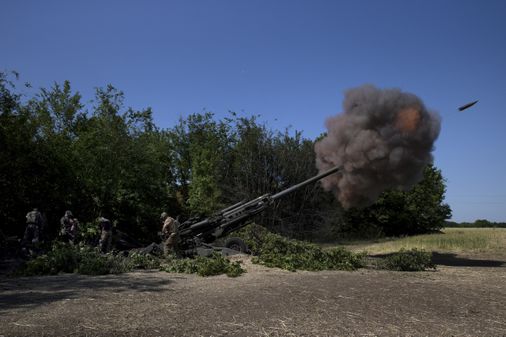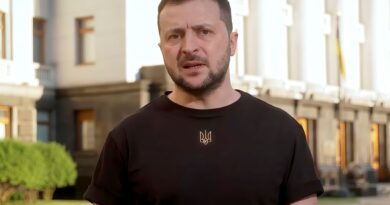Collision course for US, Russia over Ukraine

Putin has set himself on a path of domination
I have read Stephen Kinzer’s excellent book about American imperialism at the turn of the 20th century, “The True Flag,” and recommend it to anyone who wishes to understand the evil and folly of colonialism. Unfortunately, I am certain Vladimir Putin has not read it.
While it may be true, as Kinzer writes in his July 11 op-ed (“Biden moves US closer to confrontation with Russia”), that Russians think “America is fiercely dedicated to destroying Russia” and that Russia “will sooner or later find itself defending Moscow against a US-led attack,” reality does matter. The history of Russian expansion and military domination in Eastern Europe and Central Asia is real, not fanciful. It was the Russians who seized Eastern Europe after World War II, and it is the current czar wannabe who has crushed and slaughtered in Chechnya and now Ukraine.
Advertisement
The United States’ past criminal, despicable treatment of others may inform, but cannot paralyze, our response to current threats. Hitler thought the rest of the world was hellbent on crushing post-World War I Germany, and he was probably correct. It made his response no more legitimate, nor less genocidal.
Scott Tucker
Newton
Outlines of an accord may be clear. They’re also flimsy.
In “Biden moves US closer to confrontation with Russia,” Stephen Kinzer writes, “Outlines of what will probably be the peace settlement in Ukraine are already clear.” Trade some land for a (brief) Russian withdrawal; Western troops promise to stay out of Ukraine. All the West has to do is concede this piece on the great geopolitical game board, never mind what the people of Ukraine want. The only obstacle Kinzer sees is a hegemonic conspiracy in Washington to bring down Russia. Between the efforts of plotting elites and the foolishness of brainwashed citizens, we meddlesome Americans are depriving the world of a clear path to peace.
Advertisement
Not surprisingly, neither Finland nor Sweden subscribes to this imaginative construction of reality. Nor do the people of Ukraine. The notion that Vladimir Putin, who fancies himself a latter-day Peter the Great, wants anything less than the reconquest of Russia’s 20th-century empire is breathtaking in its naivete. The idea that the “peace” that Kinzer describes would be anything more than a convenient pause in Putin’s murderous campaign is beyond belief.
Joseph A. Martin
Somerville
Who’d want to invade Russia anyway?
Stephen Kinzer reiterates his oft-stated position that President Vladimir Putin invaded Ukraine so that Russia could “secure itself” against a US and NATO attack. For the life of me, I cannot imagine a scenario in which anyone would want to invade the corrupt economic backwater in decline that is Russia, with the possible exception of China, which is located next to Siberia’s rich natural resources.
Putin’s war against Ukraine is nothing more than ego-driven opportunism by an isolated and ill-informed dictator who expected a quick Ukrainian capitulation.
Bill Hahn
Stoughton
This perilous proxy war doesn’t serve US interests
The Globe’s June 28 editorial supporting an allied naval armada to escort Ukrainian goods past Russia’s sea blockade, and downplaying the many risks of this approach, is another reckless toss of the dice in an increasingly dangerous US proxy war against Russia (“To avert famine, allied navies should escort Ukraine’s crops past Russia’s Black Sea blockade”).
Alex Beam’s column in the previous day’s edition (“Wishful thinking in the Ukraine-Russia War,” Opinion) faces hard realities but fails to consider costs to US taxpayers. Congress supplied aid to Ukraine well before expending wants to up by another billion along with a pledge to install a permanent US military presence in Poland. Meanwhile, some Pentagon officials foresee continued US military support for Ukraine lasting years.
Advertisement
Some portray those who question US military involvement in a conflict almost 6,000 miles from our shores as “Putin puppets.” Given the serious economic woes US intervention has produced on the home front, concerns for our national interests shouldn’t be dismissed.
Catherine Donaghy
Northampton
This article has been archived for your research. The original version from The Boston Globe can be found here.

